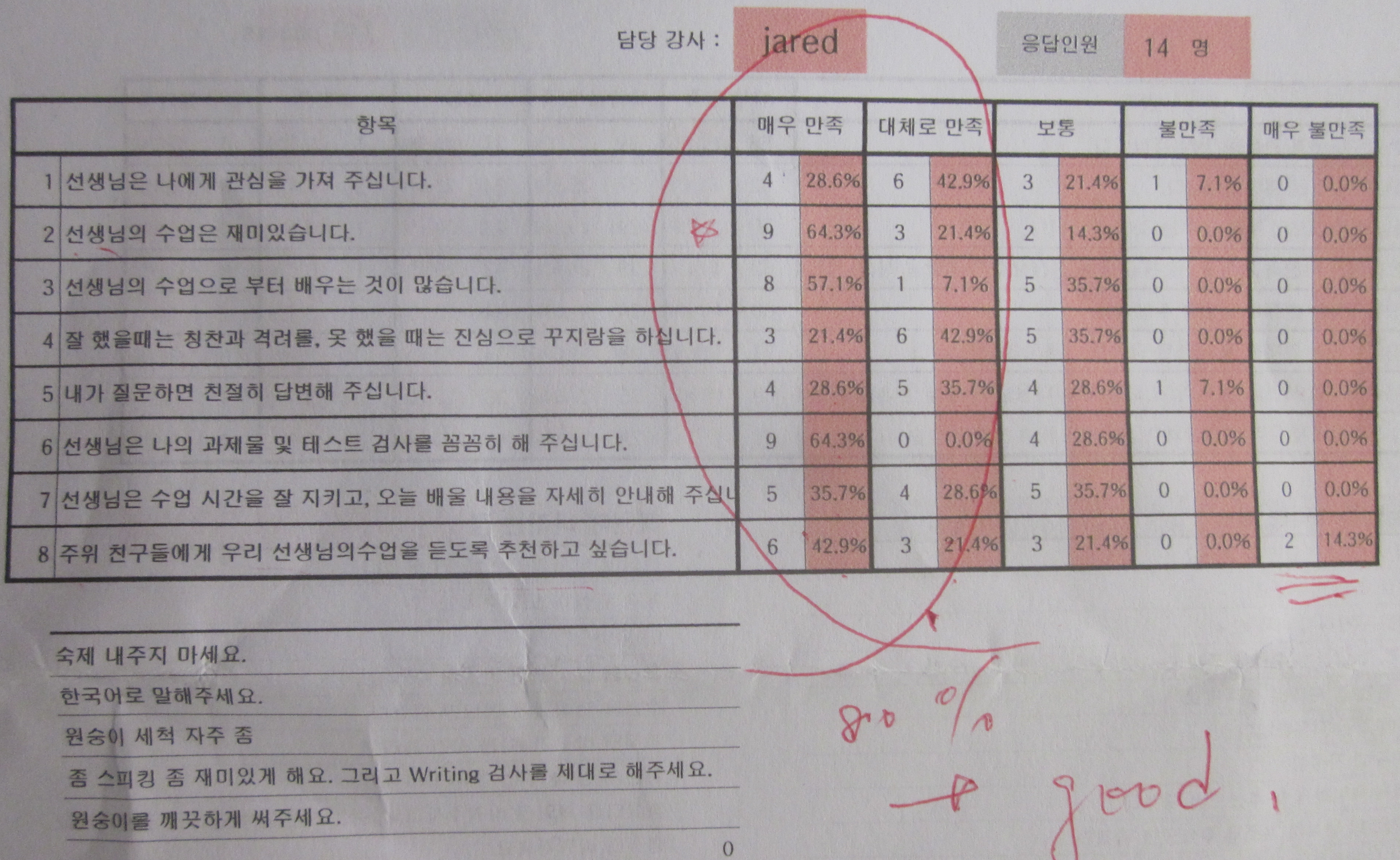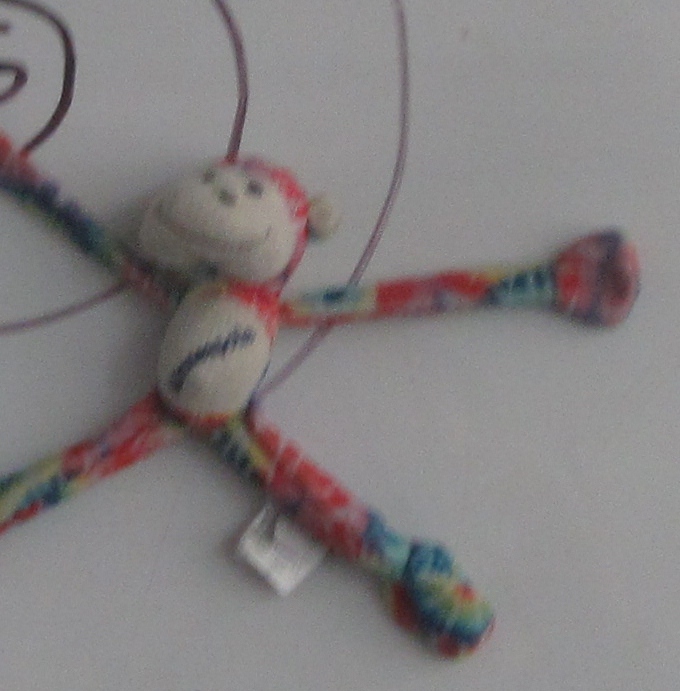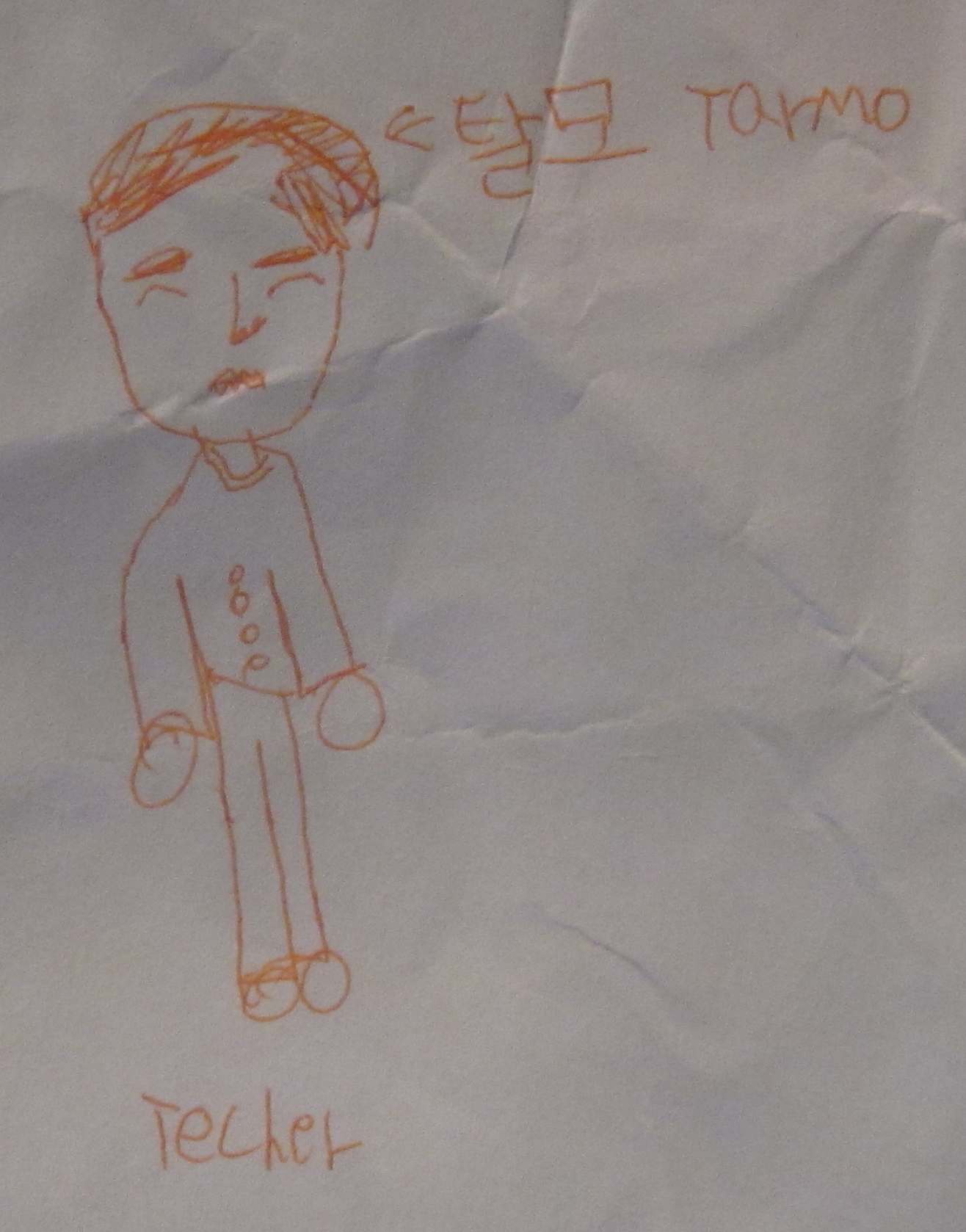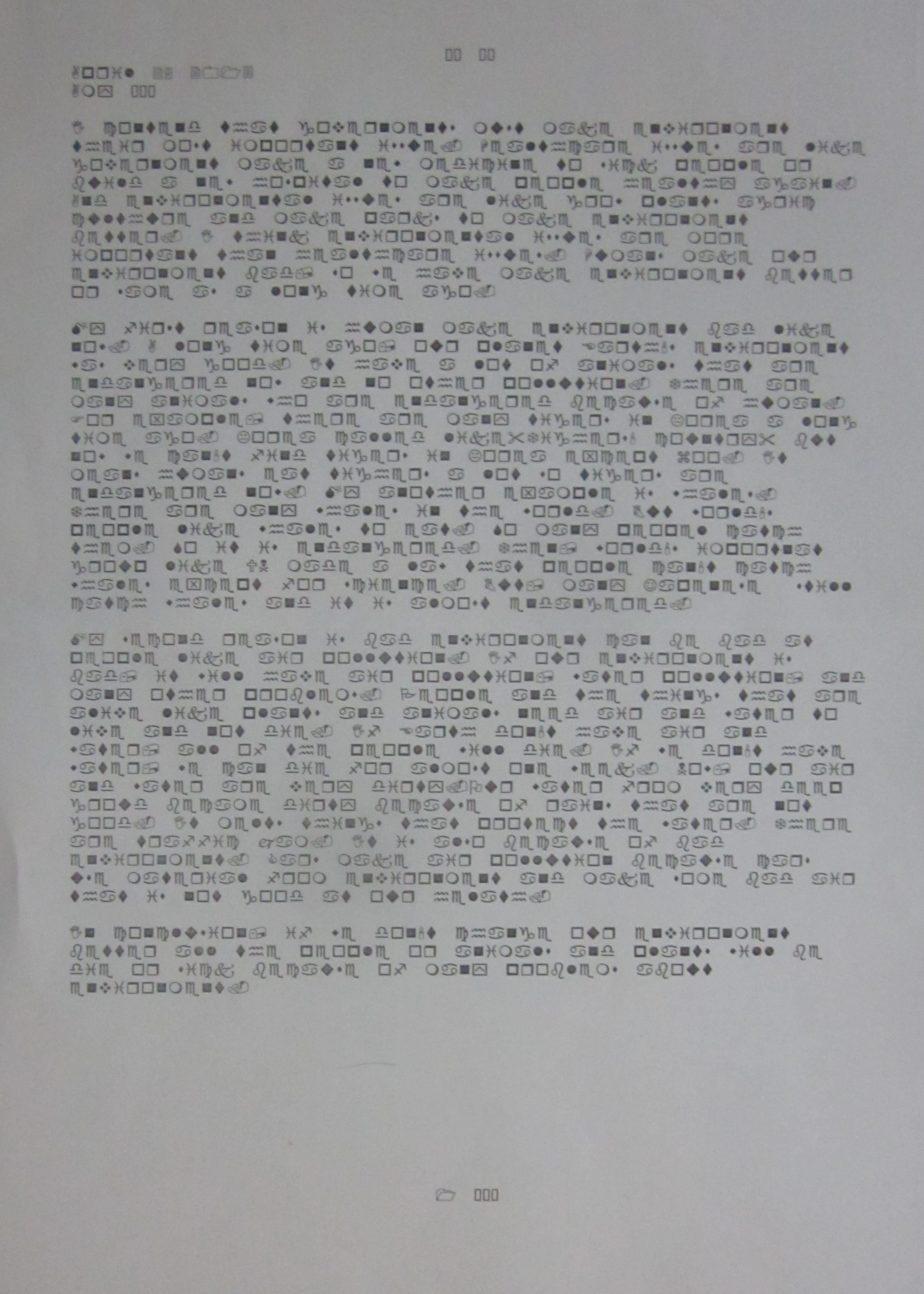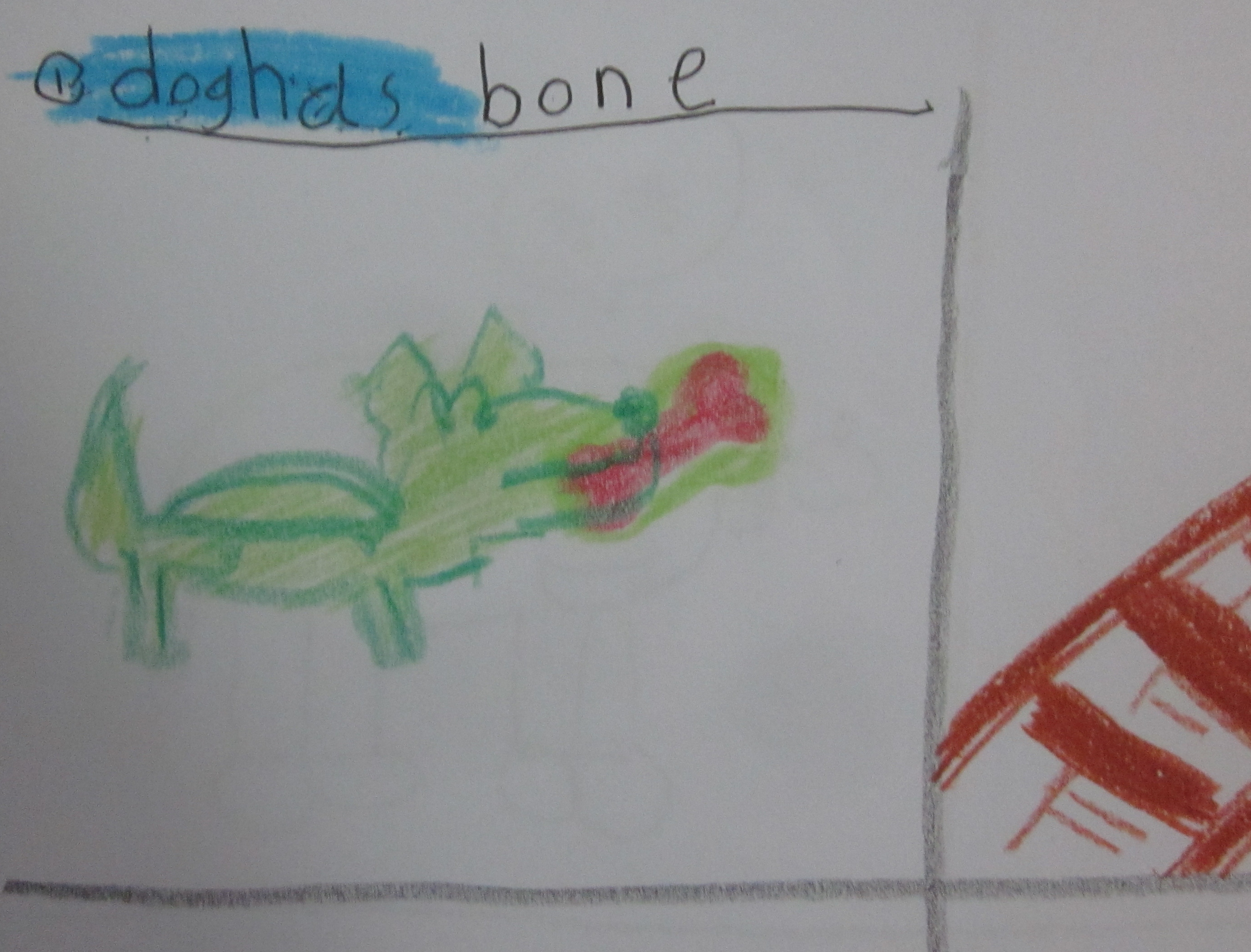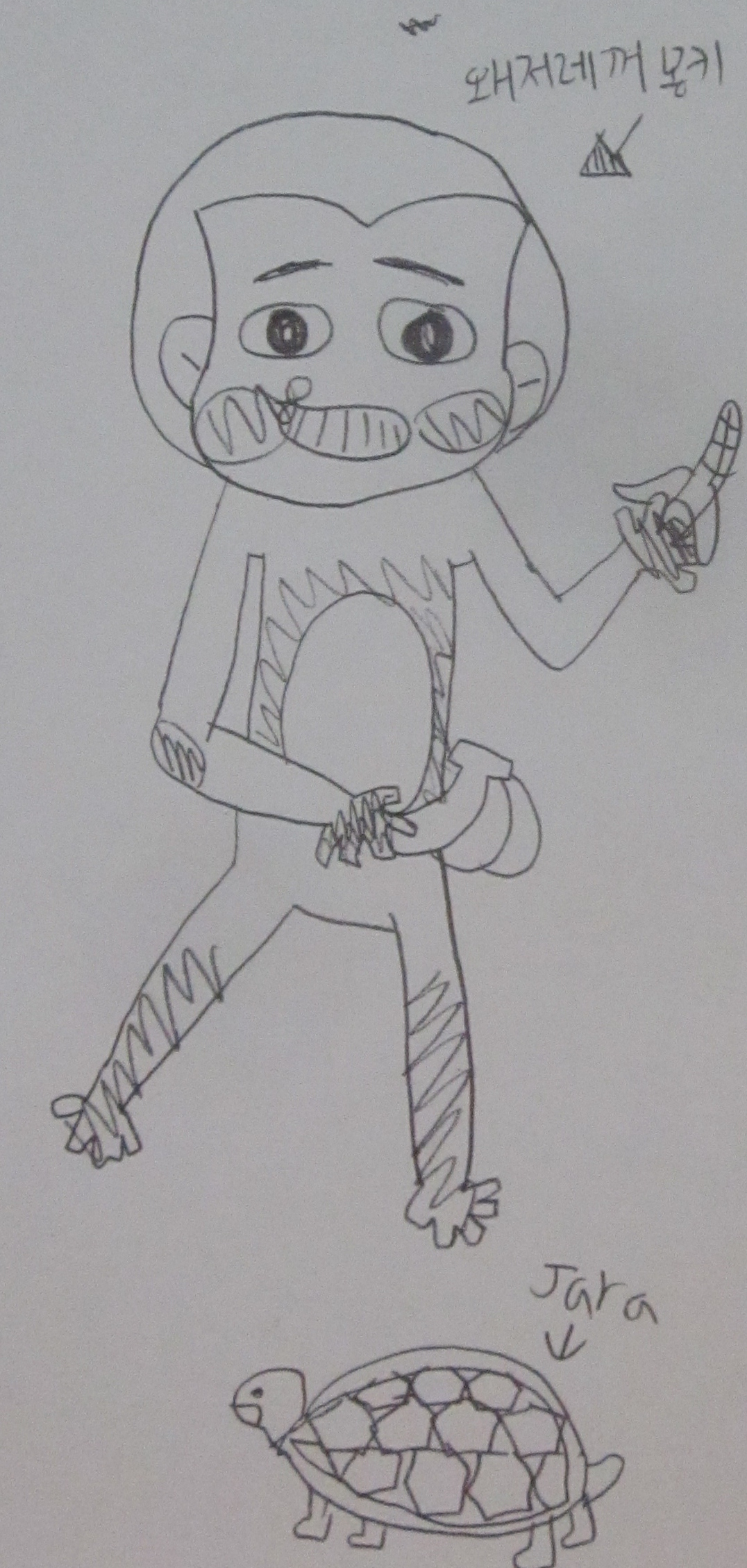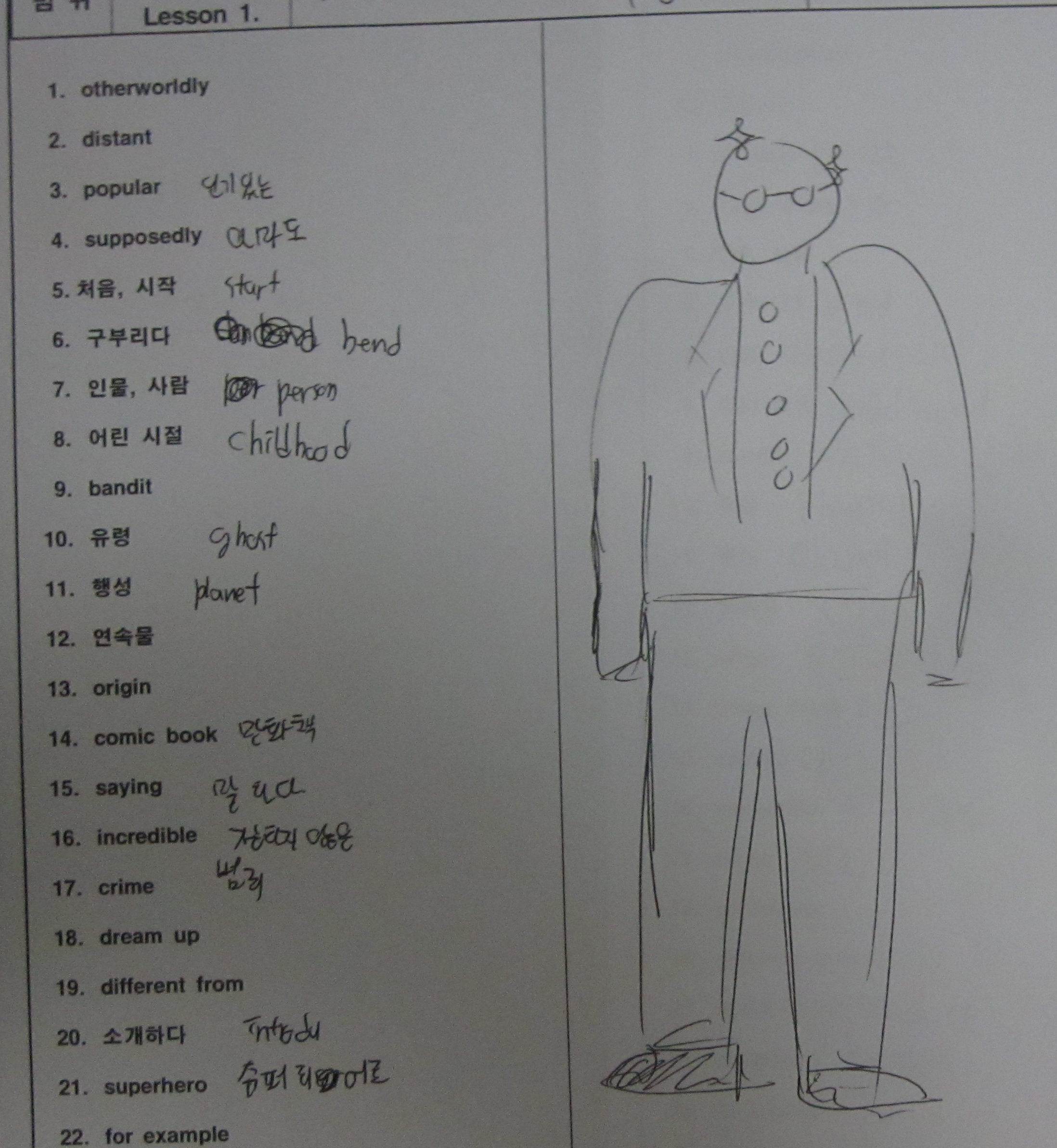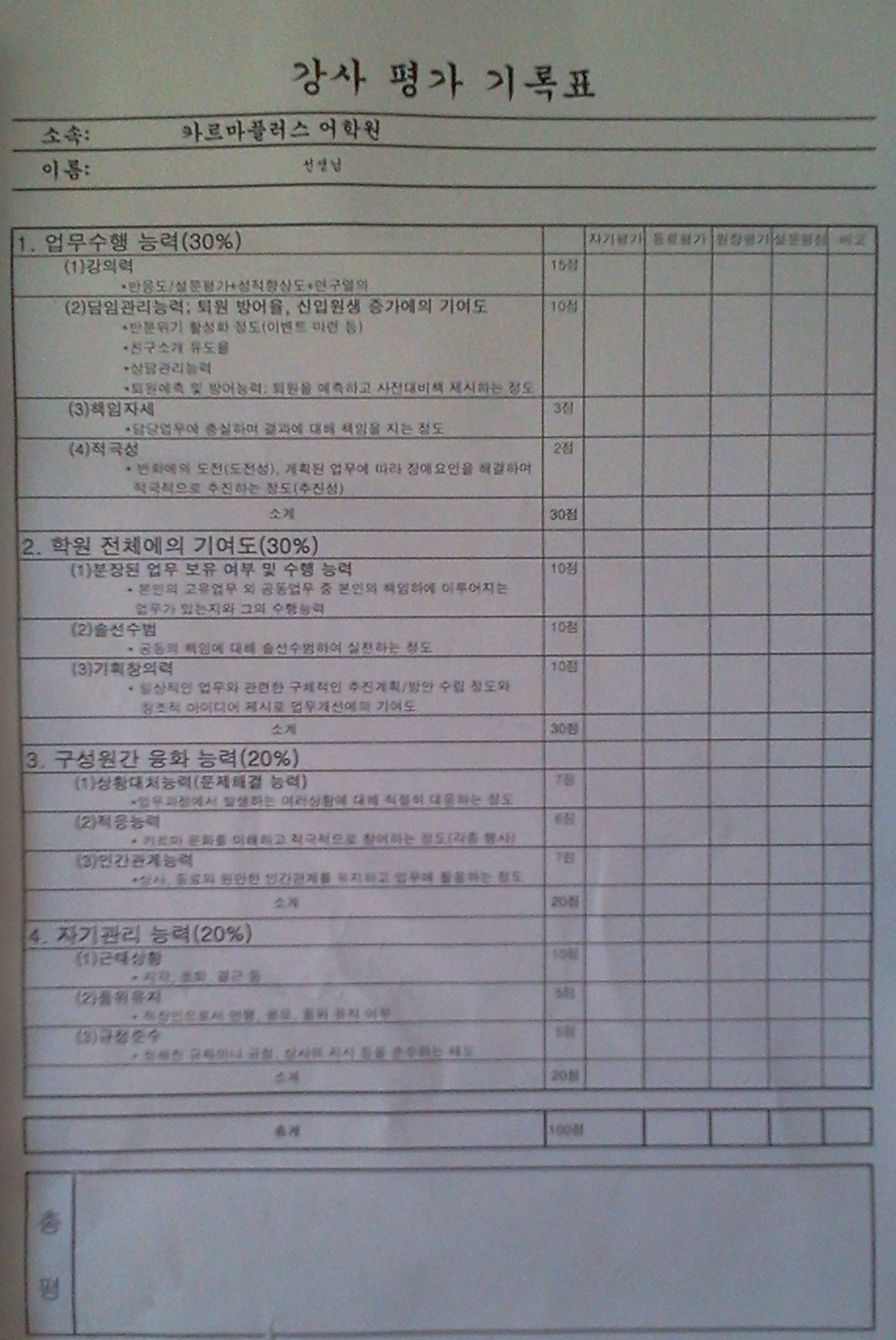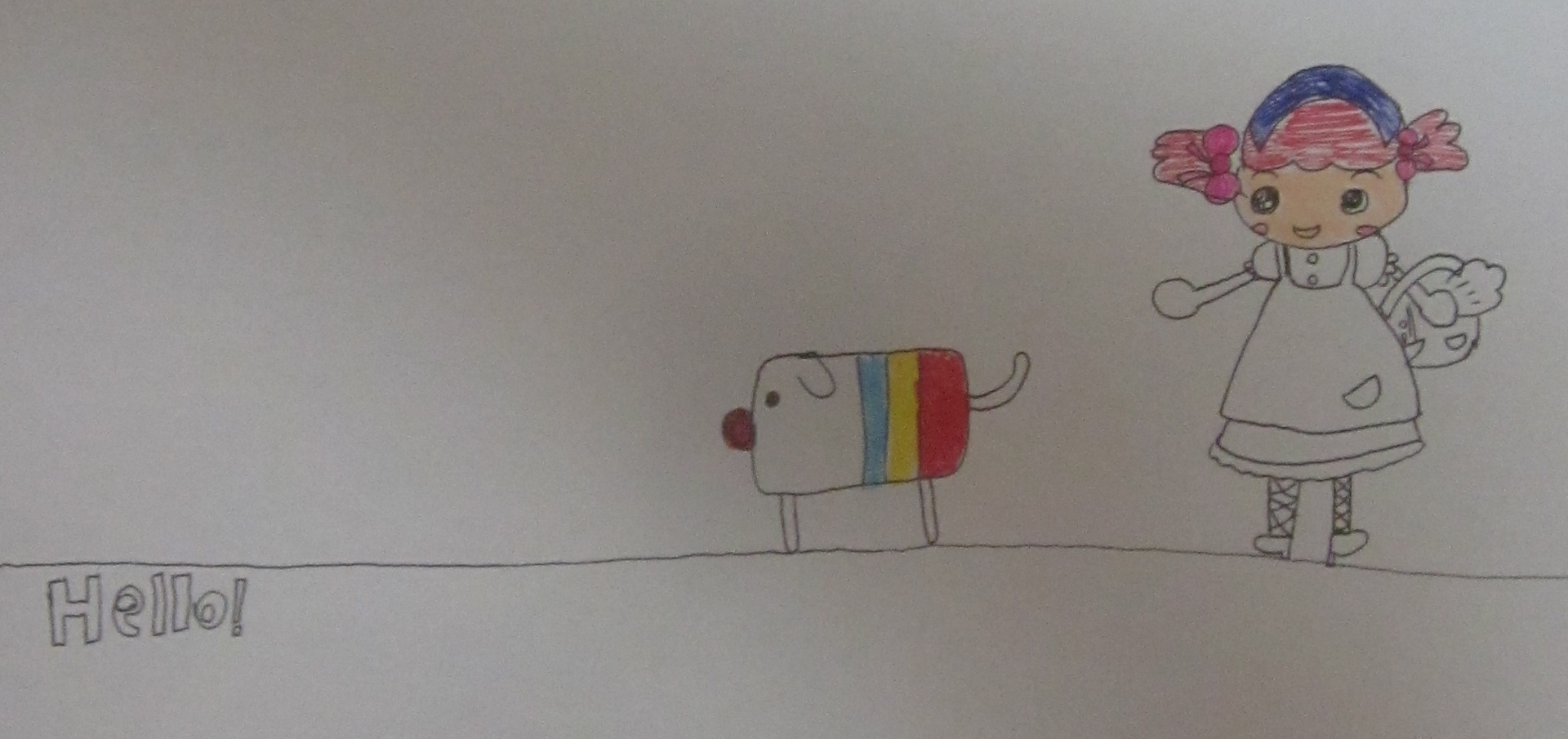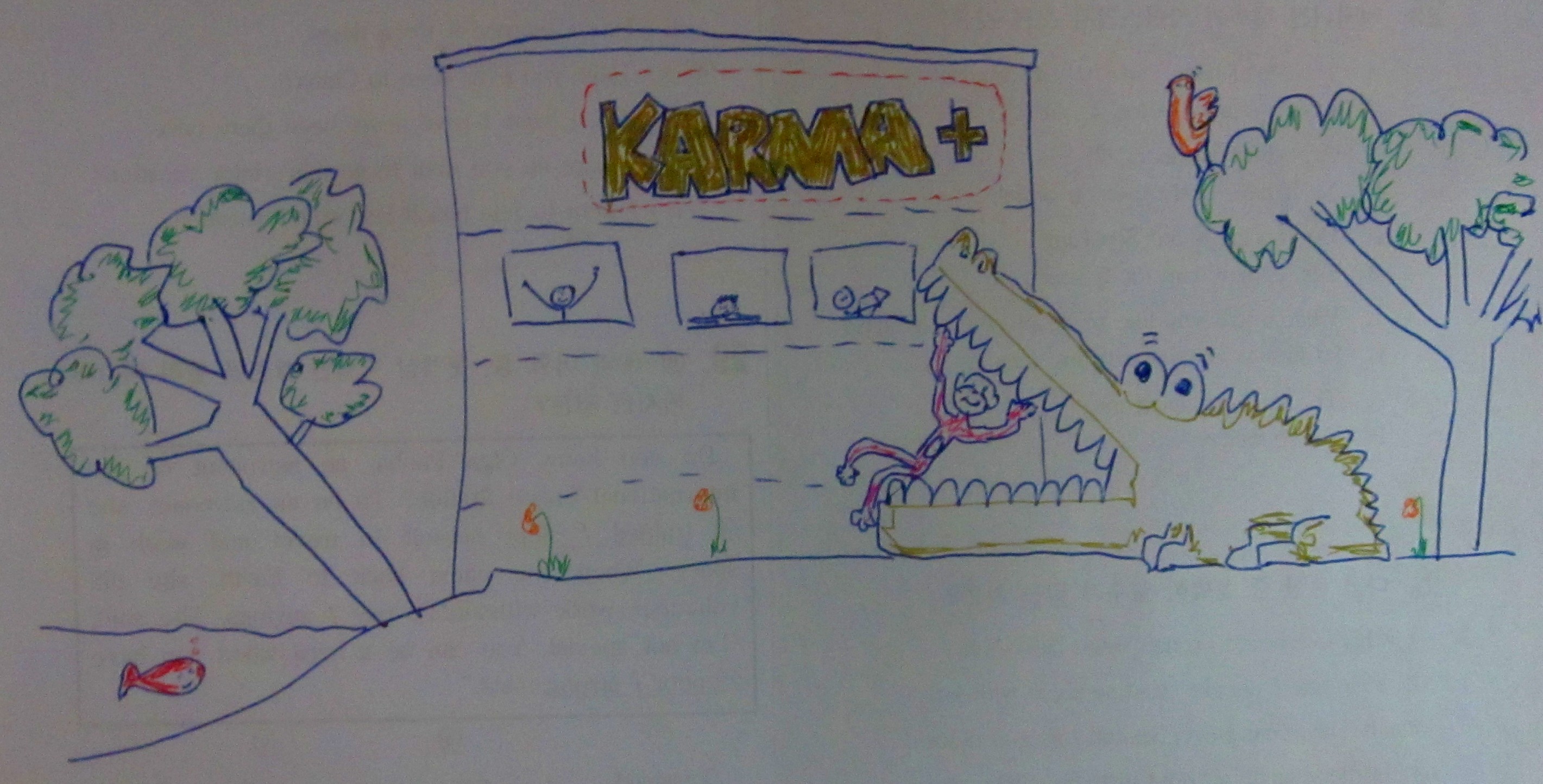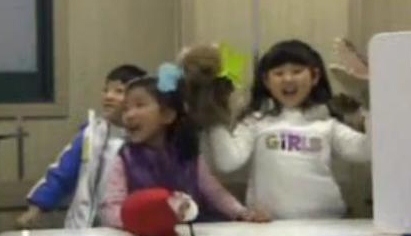This is a completely true story.
Imagine there is a classroom full of eighth-graders – Korean eighth-graders, attending a typical Korean evening English class. There is a girl, who is named Shy But Intelligent Girl, giving an interminably long, well-written but painfully-delivered speech.
Meanwhile, there is boy sitting in the front row who is named Oblivious Boy. He already gave his speech, so he is relaxed: he is on the verge of dozing off, even. Oblivious Boy is pretty handsome, in a KPop sort of way, and the girls seem a little bit intimidated by him, which in 14-year-olds tends to come off more as a dismissiveness, in their mannerisms.
Unfortunately, Oblivious Boy is wearing a black sweater, and attached to the middle of his back, in the midst of the clean black sweater, is a large white down feather – the kind of white down feather that sometimes sneaks out between the seams of popular North Face brand down winter jackets. The white feather is protruding well over a centimeter from the back of his sweater, as he sits motionless in the front row, gazing up, absent-mindedly, at Shy But Intelligent Girl who is giving her interminable but well-written speech.
This white down feather is too noticeable. It’s an affront to fashion. Who better to decide this than the girl seated two rows behind him? Her name is Fashionable Girl, of course. She is seated with her friend, Confident And Sociable Girl. They are giggling because of the protruding white down feather on Oblivious Boy’s black-sweatered back.

 This distraction demands a solution. Fashionable Girl quietly extracts a pair of green-handled scissors from her bag. Straining across the intervening desk, she clearly intends to remove, or decapitate, the offending white down feather. But she hasn’t quite reached Oblivious Boy’s black-sweatered back with her snipping scissors when her friend, Confident And Sociable Girl, realizes what Fashionable Girl intends, and so she whispers for her to stop. Stop! She makes a mime to her friend which – as anyone fluent in Korean teenager gesture-language could recognize – means, “omigod what if he notices?”
This distraction demands a solution. Fashionable Girl quietly extracts a pair of green-handled scissors from her bag. Straining across the intervening desk, she clearly intends to remove, or decapitate, the offending white down feather. But she hasn’t quite reached Oblivious Boy’s black-sweatered back with her snipping scissors when her friend, Confident And Sociable Girl, realizes what Fashionable Girl intends, and so she whispers for her to stop. Stop! She makes a mime to her friend which – as anyone fluent in Korean teenager gesture-language could recognize – means, “omigod what if he notices?”
Fashionable Girl pouts, and then she has an idea.
She tears off a square of paper from her notebook, about the same size as the offending white down feather. She whispers something in Confident And Sociable Girl’s ear, and the latter turns and leans forward. Fashionable Girl the places the square of paper in the same position as the offending white down feather, and then she proceeds to use the green-handled scissors to pluck the square of paper off of her friend’s back.
Confident And Sociable Girl turns around and gives a jubilant thumbs up. Their experiment was clearly a stunning success – the offending piece of paper was successfully removed with the green-handled scissors, without being detectable!
Meanwhile, Shy But Intelligent Girl’s interminable speech continues apace – if, well… rather interminably.
Having conducted their successful experiment, Fashionable Girl resumes leaning across the intervening desk in her effort to assault the offending white down feather on Oblivious Boy’s black-sweatered back.
Snip, snip, snip. She can’t. Quite. Reach.
At this particular moment, it occurs to Confident And Sociable Girl to take a moment to look around the room. Much to her alarm, several sets of eyes have drifted away from Shy But Intelligent Girl’s interminable but well-written speech, and are instead following the drama of the white down feather avidly. It’s not just several students either, but The Teacher, too. He’s standing at the back of the room, and he watching curiously.
Omigod!
Confident And Sociable slaps her friend’s green-handled scissors-wielding hand down in panic, and immediately, both girls collapse into giggles, face down on their respective desks.
Shy But Intelligent Girl pauses in mid-delivery of her interminable but well-written speech, with a combination of annoyance and mortification on her face. “Why are these other girls interrupting my speech?” her expression demands.
Oblivious Boy, however, remains oblivious.
The Teacher returns his attention to the interminable but well-written but now-interrupted speech, and prompts Shy But Intelligent Girl to continue. The Teacher makes a “cut it out” face at the two giggling girls. Minutes later, the speech has resumed, and the green-handled scissors have reappeared, and have resumed their snipping adventures, shakily snaking across the gap between the two grinning girls and the boy at the front.
But they just can’t. Quite. Reach.
Unfortunately, at this moment, Shy But Intelligent Girl’s interminable speech suddenly terminates.
The Teacher says, quite unexpectedly, “Yudam. Put the scissors away, please.”
“Yes.” Fashionable Girl sits back and gives a look of pure innocence, and she looks around the room as if it was some other kid in trouble. Confident And Sociable Girl giggles again, and whispers to her friend.
Oblivious Boy, however, remains oblivious.
Another speech begins, and this chapter comes to a close.


